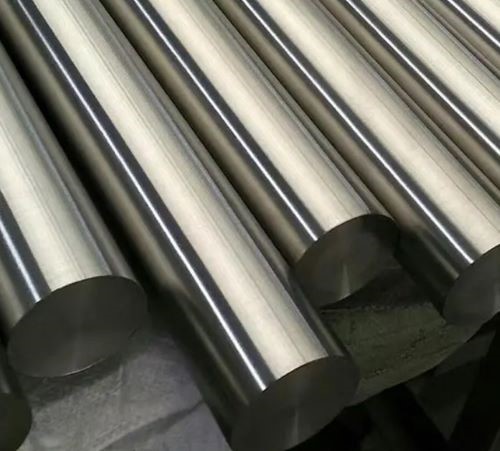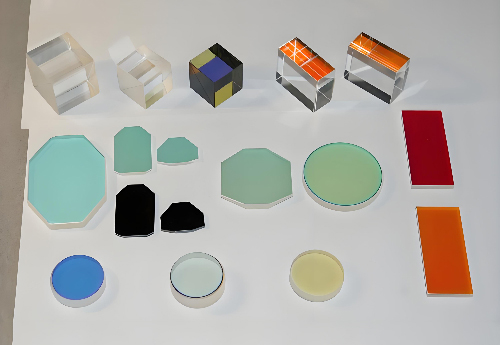Grade 38 Titanium: A High-Strength and Corrosion-Resistant Alloy
Introduction
Grade 38 Titanium represents a remarkable titanium alloy celebrated for its exceptional combination of high strength and outstanding corrosion resistance. In this article, we delve into the unique properties and versatile applications of this titanium alloy, shedding light on its critical role in industries demanding both strength and resistance to corrosion.

Figure 1. Grade 38 Titanium Products
Grade 38 Titanium: Composition
Titanium is a versatile and widely used metal in various industries, and it comes in several different grades or alloys. Common titanium grades include Grade 1, Grade 2, Grade 5 (Ti-6Al-4V), and Grade 38, among others.
- Grade 1 (Ti-Grade 1, UNS R50250) is the most ductile and softest titanium alloy.
- While Grade 5 (Ti-6Al-4V, UNS R56400) offers an excellent combination of strength, corrosion resistance, and heat resistance. It is one of the most widely used titanium alloys.
- Grade 38 (Ti-4Al-2Mo-2Sn, UNS R54250) is also a valuable alloy. It consists of around 4% aluminum, 4% Molybdenum, 2% vanadium, 2% Tin, 0.5-1.5% iron, 0.2-0.3% silicon, and 0.06-0.08% oxygen, with the remainder being titanium.
Related reading: Different Grades of Titanium and Titanium Based Alloys
Grade 38 Titanium: Benefits
Due to such composition, Grade 38 Titanium possesses excellent corrosion resistance and high strength.
High Strength:
Grade 38 has an ultimate tensile strength of around 1,030 MPa (149,000 psi), which is significantly higher than other titanium alloys such as grade 2 (345 MPa) and grade 5 (895 MPa). Its yield strength and hardness are also higher than other titanium alloys.
That’s because the alloy's composition imparts substantial strength to Grade 38 titanium. The aluminum and vanadium form a solid solution with the titanium matrix, increasing its strength, and the iron and silicon are added to improve the alloy's ductility.
Corrosion Resistance:
Grade 38 stands out for its exceptional resistance to corrosion, making it an ideal choice for applications exposed to corrosive substances, such as marine and chemical processing.
It even has better corrosion resistance than other titanium alloys such as grade 5 and grade 9. This is due to the high aluminum content, which forms a protective oxide layer on the surface of the alloy, preventing further corrosion.
Heat Resistance:
Grade 38 maintains its integrity and properties even at elevated temperatures. This characteristic extends its suitability for high-temperature applications, including aerospace and industrial processes.
Excellent Biocompatibility:
Grade 38 also has good biocompatibility, making it suitable for medical applications such as implants and surgical instruments. Titanium alloys are biologically inert, meaning they do not react with the body's tissues or fluids. This property makes them ideal for medical implants, which can be safely implanted into the body without causing adverse reactions.
Grade 38 Titanium: Applications
The exceptional combination of high strength and corrosion resistance exhibited by materials like Grade 38 Titanium plays a pivotal role in various industries.
Marine and Offshore:
Grade 38 is a preferred material for marine and offshore applications due to its exceptional corrosion resistance. It is used in seawater-exposed structures, ensuring durability and longevity in harsh saltwater environments.
Chemical Processing:
Its resistance to corrosive chemicals makes it a valuable choice for chemical processing equipment, including reactors, heat exchangers, and pipelines. Grade 38 titanium helps maintain the integrity of critical systems in corrosive chemical plants.
Aerospace:
In aerospace engineering, Grade 38 may find applications in structural components that require both strength and corrosion resistance. It contributes to the reliability and performance of aircraft and spacecraft.
Oil and Gas Industry:
This alloy is significant in the oil and gas sector, particularly in equipment used for extraction and processing. Its resistance to corrosive fluids makes it suitable for demanding offshore and onshore applications.
Medical Implants: While not as common as some other titanium grades in the medical field, Grade 38 may be utilized in specialized medical implants where corrosion resistance and biocompatibility are essential.
Conclusion
In summary, Grade 38 Titanium is a high-strength titanium alloy with excellent corrosion resistance, making it a valuable material in applications ranging from marine engineering to aerospace and chemical processing. As we continue to advance technologically and environmentally, the significance of Grade 38 in shaping a resilient and sustainable future remains undeniable.
Thank you for reading and we hope this article helps you have a better understanding of different grades of titanium alloys. For more information, please visit Stanford Advanced Materials (SAM) for future details.



